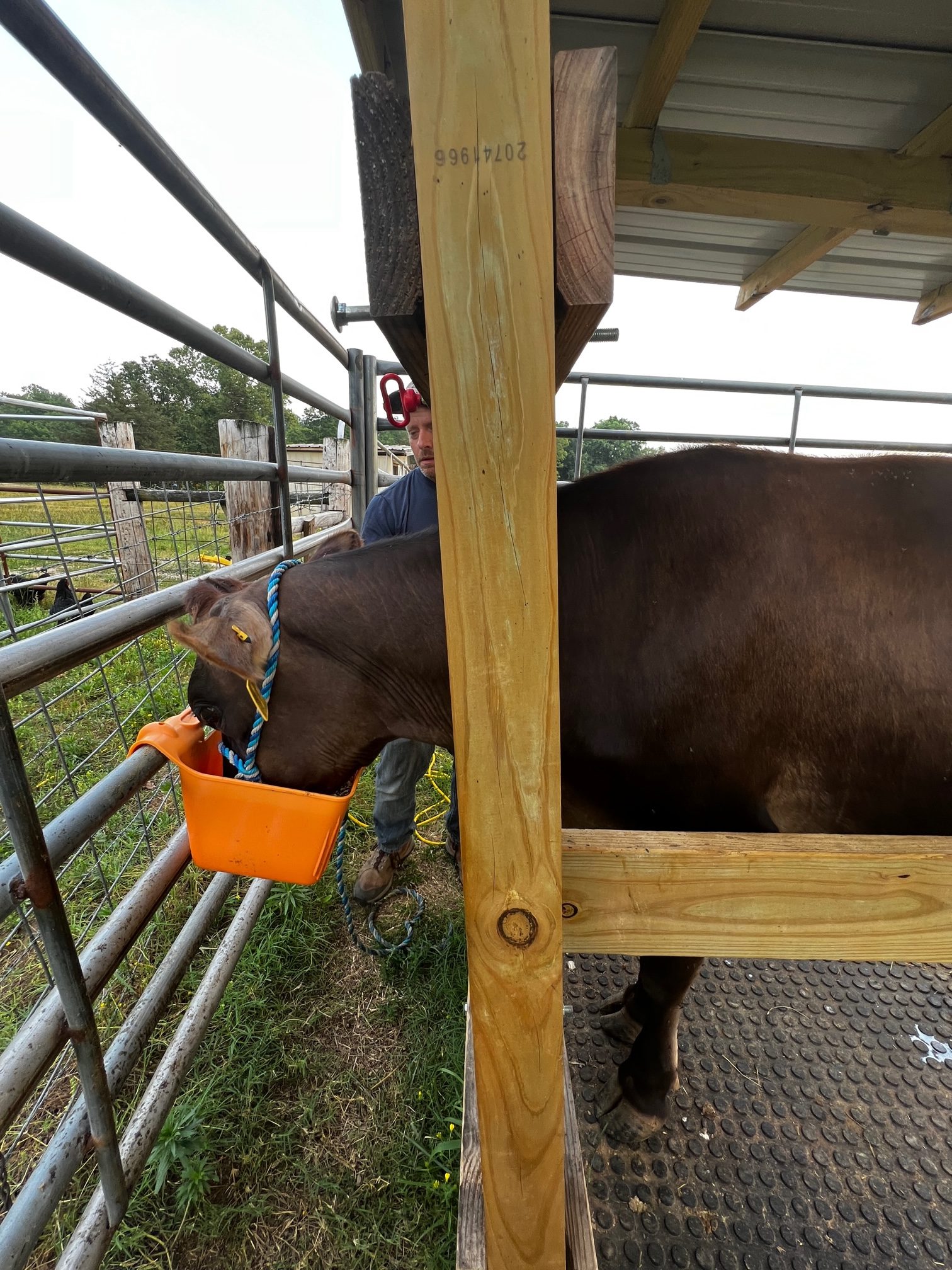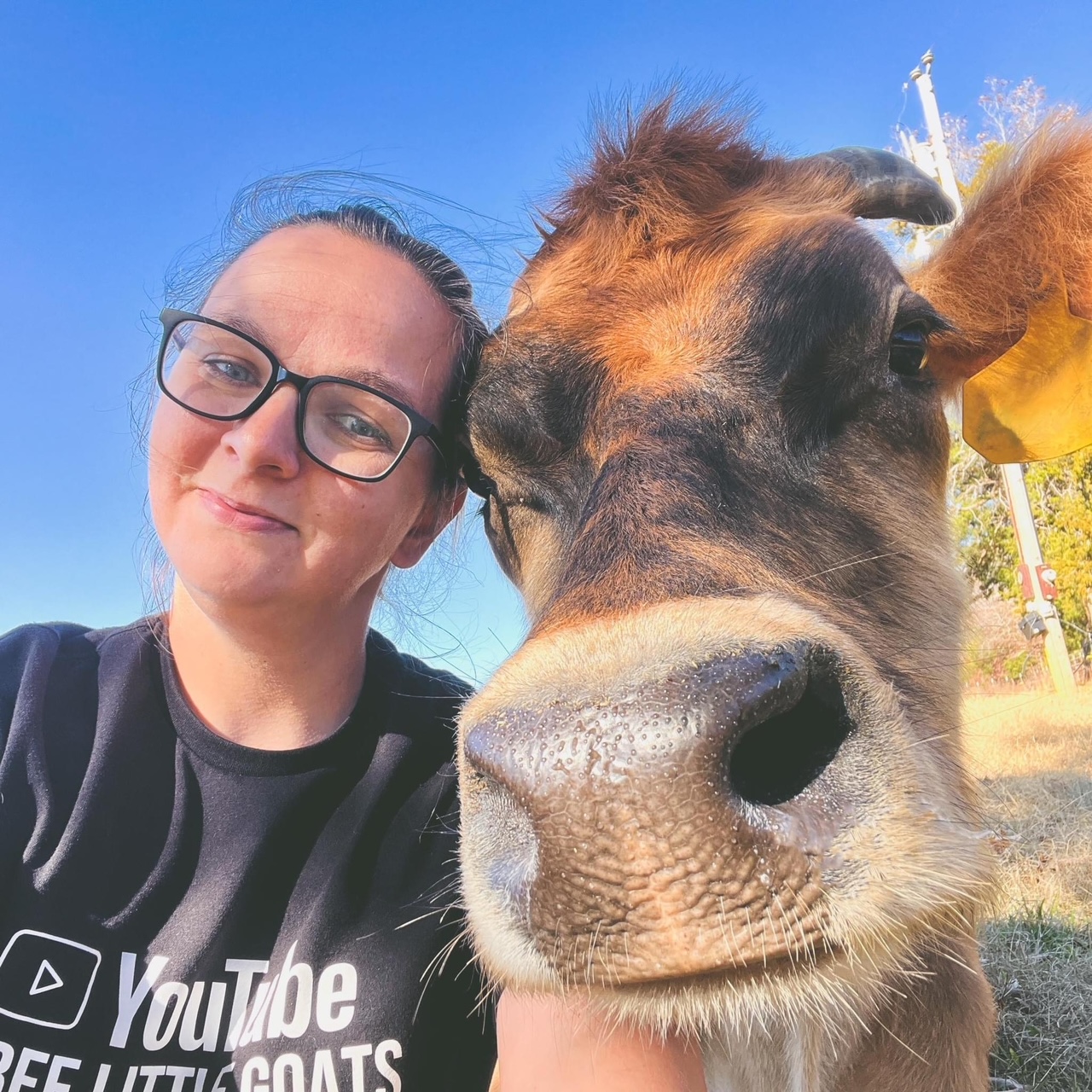This post may contain affiliate links, to learn more about them, check out our Disclosure.
When looking for a raw milk farmer, there are a few questions that you should always ask. While raw milk is relatively safe, make sure your dairy farmer is taking the right precautions to ensure it is as safe as possible. If a farmer can’t answer these questions or chooses not to answer, that should be a red flag.

What do you feed your cows?
Our cows are pasture raised and get alfalfa pellets while on the milk stand. They also have access to free choice minerals and kelp year-round. Cows and goats both require minerals, without them the animals are more susceptible to parasites and other health problems. It also affects the taste of your milk, those animals without access to high-quality minerals can sometimes have bitter or off-tasting milk. Our cows also receive hay that has been harvested from our property to ensure it is pesticide and herbicide free.
Do you hand or machine milk? How often is equipment cleaned?
On our farm, we machine milk both our cows and our goats. They each have separate machines to prevent cross-contamination. While hand milking is perfectly fine, we find machine milking prevents a lot of unnecessary contamination of the milk. Our milking equipment is cleaned and sanitized daily with a complete disassembly of the equipment once a week for a deep clean. You can see our entire milking routine on our YouTube channel.
How is your milk chilled?
Once our milk is filtered into jars, it is packed into a small fridge packed with frozen water bottles. We strive to have our milk filtered and into the chiller in under 10 minutes from the time we are finished milking. We also ensure that it is chilled below 40 degrees within 30 minutes.
Do you worm your animals?
We give our animals plenty of pasture space and use rotational grazing to help naturally keep their parasite load low. We do run monthly fecal exams to make sure they are healthy and do not need to be dewormed. If there is a need to deworm, we use a natural herbal dewormer first, if that does not work, we will use a chemical dewormer and will pull that animal from the milking rotation.
Can I tour your farm?
Of course! We welcome people to visit the farm and see the animals and milking spaces. We do prohibit visitors from going into the pastures for bio-security reasons, but you are welcome to give them pets from the fence line.
Do you use antibiotics?
We only use antibiotics when absolutely necessary for the health of the animal. If there is a reason that we need to use them, we pull that animal from the milking rotation until they are completely out of the animal’s system.
What do you store your milk in? Is it sold in jars?
We store all milk in 1-gallon glass jars. Most of our milk customers buy one of our glass jars and bring them back each week to swap out for a newly filled one. If you have your own containers, we are happy to fill them for you. We also sell beverage bags for those wanting something that takes up a little less space.
How often does your farm test your dairy cows for Brucellosis, Tuberculosis, and Johnes?
We test our herd yearly for Brucellosis, Tuberculosis, and Johnes. If we bring a new cow to the farm, they are tested before being introduced to the rest of the herd.
How fresh is your milk?
Some farms sell their milk up to a week old. We do not. We milk our cows once a day in the evening, and that milk is sold the following day. At the end of the day, anything left over will be set aside for our family to use for cheese or ice cream.
Do you skim your milk?
Our milk is never pasteurized or skimmed. When you buy our milk, it is guaranteed to have a nice, thick cream line. Most of our customers can get over half a quart of cream by just hand-skimming it. We take pride in our thick, rich, cream!
Is your milk A2/A2?
All of our cows are tested and confirmed A2/A2. Goats are all naturally A2/A2.
Looking to buy raw milk? Learn more about our herd and milk here!



